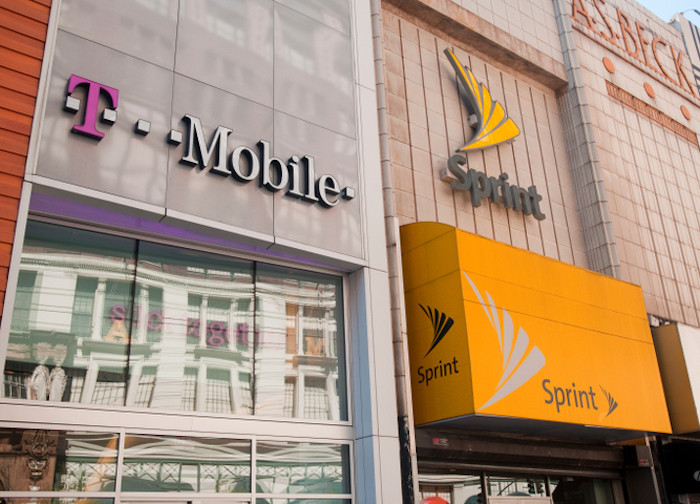Popular Reads
Top Results
Can't find what you're looking for?
View all search resultsPopular Reads
Top Results
Can't find what you're looking for?
View all search resultsUS approves merger of wireless operators T-Mobile, Sprint
The deal aims to create a strong number three US operator to compete against sector leaders Verizon and AT&T and speed 5G deployment, but consumer groups have complained the deal would mean more concentration and higher prices.
Change text size
Gift Premium Articles
to Anyone
U
S antitrust authorities on Friday approved the $26 billion merger of T-Mobile and Sprint in a deal that brings together the third- and fourth-largest wireless operators as the industry moves toward deployment of superfast 5G networks.
The deal aims to create a strong number three US operator to compete against sector leaders Verizon and AT&T and speed 5G deployment, but consumer groups have complained the deal would mean more concentration and higher prices.
It calls for Sprint to sell some of its prepaid wireless operations to satellite TV operator Dish Network, which would create its own telecom service.
"With this merger and accompanying divestiture, we are expanding output significantly by ensuring that large amounts of currently unused or underused spectrum are made available to American consumers in the form of high quality 5G networks," said Makan Delrahim, head of the Justice Department's Antitrust Division.
Delrahim added that the agreement "will provide Dish with the assets and transitional services required to become a facilities-based mobile network operator that can provide a full range of mobile wireless services nationwide."
T-Mobile, whose parent is German-based Deutsche Telekom, and Sprint, controlled by Japan's SoftBank, claim the merger will allow them to compete against their larger rivals.
"The T-Mobile and Sprint merger we announced last April will create a bigger and bolder competitor than ever before -- one that will deliver the most transformative 5G network in the country, lower prices, better quality, unmatched value and thousands of jobs," said T-Mobile chief executive John Legere, who will retain the CEO job upon completion of the merger.
"Today's results are a win-win for everyone involved. We cannot wait to get to work bringing this pro-consumer, pro-competition New T-Mobile 5G network to US customers from coast to coast."
Sprint executive chairman Marcelo Claure said the tie-up "will allow the US to fiercely compete for 5G leadership" and that the combined firm would build "one of the world's most advanced 5G networks, which will massively revolutionize the way consumers and businesses use their connected devices to enhance their daily lives."
No timetable for finalizing the merger, which was first announced more than a year ago, was given on Friday.
Read also: Huawei units plead not guilty to US trade secret theft
- Higher prices? -
Consumer groups and others have criticized the deal, arguing that too much concentration would lead to higher prices.
Earlier this year, 14 states sued to block the deal. The Justice Department said five states agreed to the settlement, which still faces approval in court.
Joshua Stager of the New America Foundation's Open Technology Institute said the deal falls short of retaining four "viable competitors" for the sector and said the effort to sell off assets to Dish was "needlessly convoluted."
"DOJ does not need to bend over backwards to fix a bad merger. It can simply block the deal," he said.
Derek Turner of the consumer group Free Press also denounced the deal.
"This arrangement does not offer cellphone users a viable fourth competitor in the wireless market," Turner said.
"This merger is bad for wireless users and can't be fixed."
Avery Gardiner, an antitrust fellow at the Center for Democracy & Technology, said the decision to approve the deal "goes against decades of settled principles" of competition.
"The wireless industry is already highly concentrated, and this deal is likely to result in higher prices, calcified cell service plans, and lower quality all around," she said.
But Jessica Melugin of the Competitive Enterprise Institute said the deal would be positive for consumers by allowing for three strong 5G operators.
"With the government out of the way, consumers will get the wireless innovations they deserve and that the unfettered marketplace can deliver," Melugin said.
Dish Network, which operates satellite and other pay TV systems, said it would deploy a "5G broadband network capable of serving 70 percent of the US population by June 2023."
Dish will get wireless spectrum to be divested in the deal as well as the prepaid Sprintoperations Boost Mobile, Virgin Mobile, and Sprint Prepaid.











